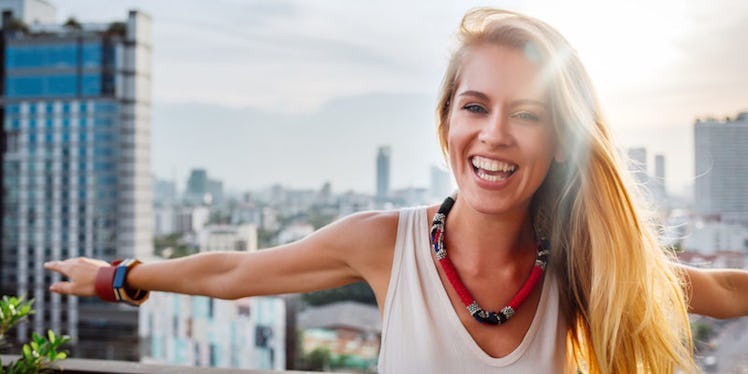
Why Women Are Also To Blame For Gender Gaps In Society
Someone once asked me why I hate men. My response was somewhat akin to, “…what?”
I am very openly a feminist, and yes, there is about a 150 percent correlation between feminism and standing up for female rights. But, that in no way means I hate men.
Just like the War On Terror, the War On Women has publicized some outrageous assumptions and some truly ridiculous people, but feminism is about standing up for female rights (thus, why it is not referred to as "equalism").
We're talking about female rights in the workplace and in Congress -- medically, economically, politically.
Personally, the majority of the negative experiences I have ever had were at the hands of females. Mean girls in middle school were the worst bullies. Anything the immature boys could say about my body was nothing compared to the torture I endured because of my female “friends.”
When I walked into the ER and asked for a rape kit, the (female) nurse at reception paused to give me a skeptical look. She then went through the motions; I had my vitals taken by another (very kind) female nurse; then, I was introduced to a (female) doctor.
The doctor asked if my rape had been consensual.
She then continued to describe what a rape kit was and how it would most likely not uncover much information in my specific case. This doctor completely discouraged me from getting the kit. I had taken a shower; the perpetrator had used a condom, and I wasn’t in my original clothes.
The nurse who had taken my vitals was still in the room and interjected to point out the grocery bag of clothes at my feet. But, the doctor barely took it into account.
She then asked if I still wanted to go through with the examination. I answered yes, and she described to me the role the police play, how rape kits at the hospital are very complicated and how the hospital was very busy at the moment and I might have a long wait.
She also mentioned there was no RAINN (Rape, Abuse and Incest National Network) advocate present at the hospital at the time, but to me, this was no excuse, as all medical professionals are trained to deal with sexual assault cases.
I went back to the waiting room and waited for about 15 minutes with my boyfriend and friends, but ultimately decided it was not worth it. I walked back up to reception and told a different nurse I wanted to cancel the procedure and left.
After the incident at the hospital, I also had to talk to a number of police officers and detectives.
I had a great amount of support from the (female) head of counseling at my college. But, the (female) detective at the SVU with whom I spoke made me recount every detail of my experience. She stopped me every so often to question my actions and reactions.
She very clearly told me what I had experienced wasn’t, in fact, rape, and eventually had me sign a form stating it was not rape.
The case was passed on to the vice unit, where I talked with a (male) detective who was much more sympathetic. He said, “You did what you had to do to get out of there.”
After a long, drawn-out couple of weeks and being referred from department to department, I decided not to follow through with the investigation. The man at vice told me they would do their best without my help.
If I had decided to press charges, I would undoubtedly end up in court, where the United States legal system would tear me apart. There chances were pretty high I would end up at fault, too. I decided, instead, to put the incident behind me and focus on my recovery and wellbeing.
I do not specify the genders of the people I talked to during this experience to attack women, but merely to point out it is not only men who make women's lives difficult. It is not only men who have distorted judgments and misuse their power.
Yes, a man raped me, and I was in an unsafe situation surrounded by men. But, that is no cause to believe all men are bad. More so than the assault itself, the aftermath was what truly opened my eyes.
It is not very difficult to locate the most recent rape statistics. RAINN has a very good infographic on its site.
Some stats are listed below:
Annually, there are about 293,000 victims of sexual assault. Sixty-eight percent of these assaults are not reported to police, and 98 percent of rapists will never spend a day in prison.
One out of every six American women has experienced completed or attempted rape — that's 17.6 percent. Three percent of American men have experienced completed or attempted rape — that’s one in 33. In 2003, the statistic for women was one in every 10.
Of course, there is always a more in-depth story to be told with each and every statistic. I am simply pointing out the raw numbers.
The story I told above is my subjective experience, which differs from every victim of sexual assault. My story began at the hands of men, but ended with those of women.
Both genders have a responsibility to each other, but most importantly, to themselves. Many people (both male and female) are feminists. There are also many women who would not identify as feminists, and I have no problem with their beliefs and the reasons for them.
There is still a gender pay gap, with men receiving the higher salaries. But, there is only so much we can do for gender equality without the full support of both genders.
How are we ever supposed to succeed to LGBT rights if we cannot balance out the male-female ratios?